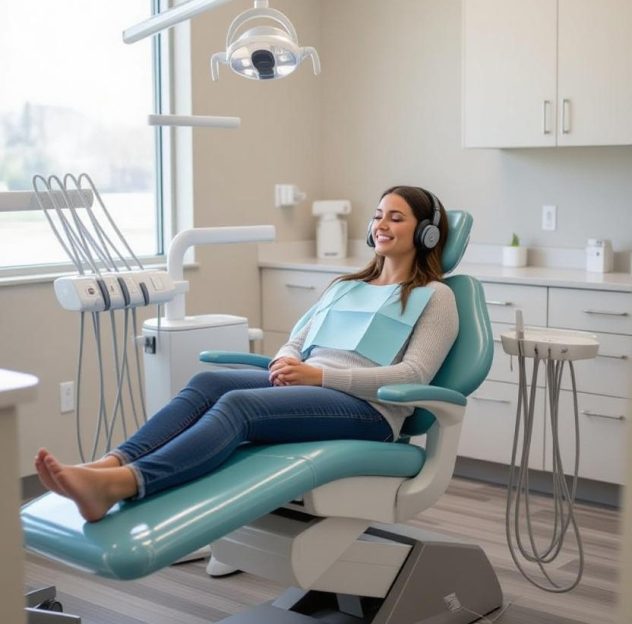
Many autistic patients experience anxiety during dental visits due to loud noises and invasive procedures. Traditional dentistry can be overwhelming, making even routine cleanings a source of stress. Gentle, biomimetic dentistry offers a different approach, focusing on minimally invasive techniques that mimic the natural structure of teeth.
This approach is gaining attention in oral health care NYC as dentists look for ways to reduce stress for patients with sensory sensitivities. Biomimetic dentistry relies on advanced tools and methods that limit drilling and discomfort, helping patients feel safer and more relaxed during treatments.
What is Biomimetic Dentistry?
Biomimetic dentistry aims to restore teeth while preserving as much natural structure as possible. Instead of aggressive drilling and large fillings, dentists use precise bonding materials and techniques that reinforce the tooth’s integrity. This approach emphasizes prevention, repair, and long-term strength over invasive procedures.
For autistic patients, the benefits are significant. Reduced drilling means less exposure to the sharp sounds and vibrations that often trigger sensory overload. Dentists can perform treatments with smaller tools and quieter equipment, which makes visits less intimidating.
Minimizing Stress During Visits
Creating a calm environment is just as important as the dental technique itself. Many dental offices now offer sensory-friendly spaces with soft lighting, noise-reducing headphones, and gentle communication methods. Staff trained in autism awareness help patients feel understood and supported.
Some practices allow slow, gradual introduction to procedures. Patients may have time to explore dental instruments or practice sitting in the chair before treatment begins. This preparation reduces fear and builds trust, allowing the dentist to work more effectively without rushing.
Advanced Technology Makes a Difference
Digital scanning and computer-aided design have transformed biomimetic dentistry. These tools allow dentists to plan restorations without multiple invasive impressions. 3D imaging and laser technology can create precise fillings, crowns, and other restorations with minimal physical contact. Patients experience fewer visits and less time in the chair, which can be particularly beneficial for those on the autism spectrum.
Benefits Beyond Comfort
- Preservation of natural teeth: Biomimetic methods focus on strengthening and repairing existing teeth rather than removing them.
- Durability: Advanced materials used in bonding and restoration provide long-lasting results.
- Reduced risk of future dental problems: Conservative treatment helps prevent cracks and fractures over time.
Building Trust with Patients
Gentle dentistry is also about emotional care. Patients who feel respected and supported are more likely to maintain regular visits and follow preventive care routines. Open communication, patience, and empathy make a significant difference in patient cooperation and overall oral health outcomes.
Education for Families
Families play a key role in successful dental care. Dentists often provide guidance on at-home hygiene techniques, nutrition, and strategies to reduce anxiety. Understanding what to expect during appointments can empower parents and caregivers, helping children develop positive dental experiences over time.
READ ALSO: Dental Transitions with Heart – Building Autism-Friendly Practices
The Future of Dental Care for Autistic Patients
Gentle, biomimetic dentistry represents a meaningful shift in how dental care is delivered. By prioritizing minimal invasiveness, sensory comfort, and patient-centered care, dentists are redefining what it means to receive treatment. The combination of advanced technology and compassionate practice ensures that autistic patients can achieve optimal oral health without fear.
Patients in New York City seeking a more comforting and effective approach to oral care can explore oral health care NYC that integrates biomimetic techniques. These practices make dental visits less stressful and more successful, creating a positive experience that supports long-term health and well-being.
Gentle dentistry is more than a treatment style—it is a philosophy of care. For patients on the autism spectrum, it opens doors to healthier smiles, reduced anxiety, and better overall outcomes.
By combining sensory-friendly practices with innovative technology, biomimetic dentistry sets a new standard for compassionate oral care. Patients can finally look forward to dental visits as a safe and supportive environment where their needs are understood and prioritized.